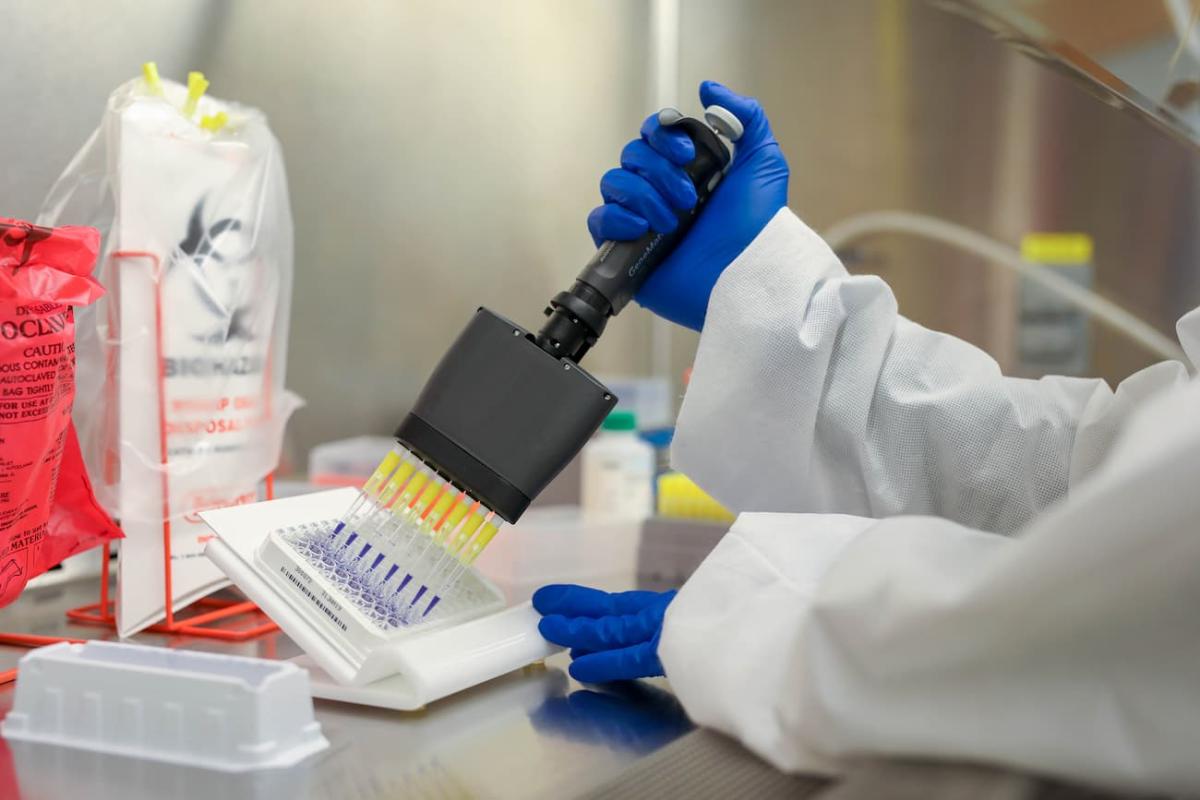Duke Human Vaccine Institute Receives Virology Quality Assurance Program Contract
The Duke Human Vaccine Institute has been awarded a contract in the amount of $28.1 million from the National Institute of Allergy and Infectious Diseases (NIAID), part of the National Institutes of Health, to house a virology quality assurance program for laboratories involved in HIV research.
Duke Institute Awarded $129 Million Grant in Ongoing Quest for HIV Vaccine
The Duke Human Vaccine Institute (DHVI) will remain at the lead of the nation’s effort to develop an HIV vaccine, receiving a third, seven-year grant from the National Institute of Allergy and Infectious Diseases totaling at least $129 million.
New Study Works to Understand the Prevalence of Valley Fever
Coccidioidomycosis, also known as “Valley Fever” is an infection caused by Coccidioides, a fungus commonly found in the southwestern region of the United States.
HIV Antibodies learn to Elbow Flex
Behind The Paper blog post by DHVI post-doc, Rory Henderson, for the Nature Research Micrbiology Community. In this post, Dr. Henderson describes the thinking behind his paper, “Selection of immunoglobulin elbow region mutations impacts interdomain conformational flexibility in HIV-1 broadly neutralizing antibodies,” and how the research progressed over time.
Despite evidence, vaccine protests continue
Sixty-five years ago, the polio vaccine developed by Jonas Salk was tested in a landmark efficacy trial. Participants in the trial were called “Polio Pioneers,” and families lined up to receive a vaccine they hoped would prevent their children from contracting this terrifying disease that can cause paralysis and death.
New Insight on Potent HIV Antibody Could Improve Vaccine Design
In the quest to develop an effective HIV vaccine, researchers have focused attention on identifying and targeting the region of the virus’s outer envelope where a lineage of antibodies are able to dock and neutralize the virus.
INVEST: Improving Immunization Coverage in Adolescents
In September 2018, a multidisciplinary team of investigators from Duke University and the University of South Carolina started INVEST, “A tailored school-based INtervention to increase VaccinE uptake among adoleScenTs in the rural South”.
DHVI Faculty in 2018 Highly Cited Researchers list
Duke is tied for 12th in the worldwide rankings by number of highly cited researchers this year. Duke is 9th among U.S. institutions, which are by far the most-cited institutions.
Women in Science
On Thursday, November 15th, Duke Graduate Students, Postdoctoral fellows, Program Managers, Faculty Members and Investigators attended a Women in Science Mentoring event hosted by the DHVI's Giny Fouda, Ph.D. and Maria Blasi, Ph.D. Guest speaker Nancy Haigwood, Ph.D. from the Oregon National Primate Research Center at OHSU facilitated the discussion and covered a range of topics from job negotiation, family balance, motherhood in science, to networking, navigating male-dominated environments and transitioning between industry and academia.
DHVI IVQAC Laboratory Receives Accreditation From College Of American Pathologists
The Accreditation Committee of the College of American Pathologists (CAP) has awarded accreditation to Duke Human Vaccine Institute - IVQAC Laboratory, Durham, North Carolina based on results of a recent January 2018 on-site inspection as part of the CAP's Accreditation Programs.









